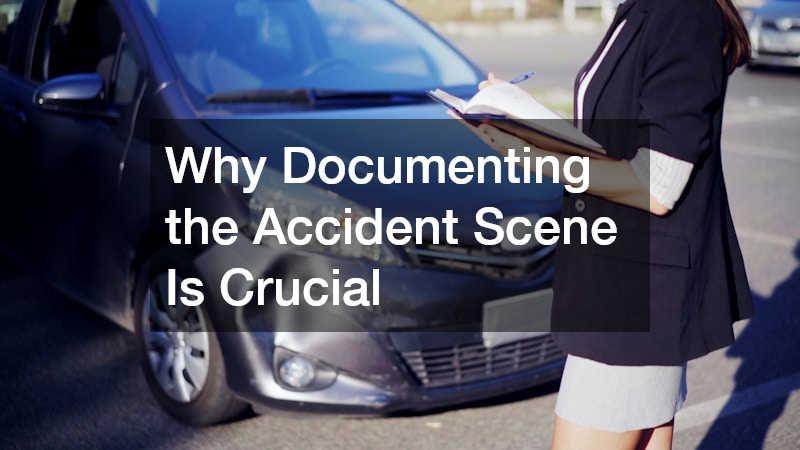
What Happens If You Get Hit by a Car? Your Legal and Medical Guide
Getting hit by a car is a frightening, often life-changing event that can leave you with serious injuries, mounting medical bills, and far more questions than answers. In the chaos that follows, it’s easy to feel uncertain about what to do first, who to call, or how to make sure your rights are protected. Whether you were walking across the street, biking to work, or driving your own vehicle at the time, the steps you take immediately after the accident — and in the weeks that follow — will play a major role in your physical recovery and your financial outcome.
Accidents like these affect more than just your health. They can disrupt your ability to work, leave you facing costly auto repair needs, and create lasting stress. From basic windshield repair or glass repair to major bodywork or specialized Audi repairs, damage to your vehicle adds another layer of difficulty when you’re already coping with medical treatment. That’s why having a trusted team — including a knowledgeable car accident lawyer to handle your claim and local auto repair shops or an auto repair company to restore your vehicle — can make a tremendous difference.
This guide walks you step-by-step through the entire process, from the immediate moments after impact to understanding how to recover compensation, deal with insurance companies, and access the car services you need. By learning how to document evidence, navigate legal requirements, and work with reliable professionals, you’ll be better prepared to handle the aftermath of an accident with confidence and clarity.

Immediate Steps to Take After Being Hit by a Car
The moments right after being struck are often chaotic. First, assess whether you are in immediate danger. If you’re lying in the roadway and unable to move safely, signal to bystanders to help alert traffic. If you’re able to get up without risking further injury, move to the sidewalk or shoulder.
Even if your pain feels minor, remain cautious. Injuries to the head, neck, or spine can worsen with movement. If you suspect serious trauma, stay still until help arrives. Call 911, or ask someone nearby to do it for you.
If you’re able to speak and think clearly, collect key information:
-
The driver’s name, contact details, and insurance information
-
The make, model, and license plate number of the vehicle
-
The names and phone numbers of any witnesses
Resist the urge to discuss fault or make statements like “I’m fine” — these can be misunderstood and used against you later. Your priority is safety and accurate documentation.
When to Call Emergency Services and Seek Medical Care
You should always involve emergency services in any accident where a person is hit by a car. Paramedics can evaluate injuries on-site and determine whether immediate hospital care is necessary. Even if you feel well enough to go home, arrange a medical exam as soon as possible.
Many car accident injuries — including internal bleeding, concussions, and hairline fractures — may not cause immediate symptoms. A prompt check-up helps prevent complications and creates a medical record that can support any legal claim you pursue later.
If you require follow-up treatment, keep all records, bills, and appointment notes. A car accident lawyer can use this documentation to calculate the full cost of your injuries when negotiating with insurers.
Understanding Common Injuries From Car Accidents
Being struck by a vehicle can cause a wide range of injuries. Common examples include:
-
Head trauma and concussions – which may require monitoring or imaging scans
-
Neck and spine injuries – including whiplash or herniated discs
-
Fractures and broken bones – especially in legs, hips, and arms
-
Soft tissue injuries – such as muscle tears and ligament sprains
-
Internal injuries – which may require surgical intervention
In addition to physical injuries, many accident victims experience emotional trauma. Anxiety, depression, or post-traumatic stress disorder (PTSD) may appear weeks after the accident and should be taken seriously. Emotional harm is also compensable in many personal injury cases.
Why Documenting the Accident Scene Is Crucial
When possible, gather as much evidence as you can before leaving the scene. Use your phone to take pictures and videos of:
-
The vehicle involved (including license plate)
-
Skid marks, traffic signals, or road conditions
-
Your visible injuries and damaged clothing
-
Any nearby surveillance cameras that may have captured the accident
If your car was involved and needs repair, this documentation is also essential before visiting an auto repair shop. Whether you require windshield repair, glass repair, or more specialized Audi repairs, having detailed images will strengthen your insurance claim and legal case.
Even if police are writing a report, your own photos and notes provide a valuable second record of what happened.
How Police Reports Affect Your Case
A police report provides an unbiased, official account of the incident. Officers often record key details such as the time, location, weather, and initial witness statements. This documentation helps establish the facts if there is any dispute later.
Insurance companies heavily rely on police reports when evaluating claims. A car accident lawyer will also review the report to ensure accuracy and address any errors. If something is wrong — such as incorrect information about the location or injuries — you may be able to request an amendment from the police department.
Determining Fault When You’re Hit by a Car
Establishing fault determines who is financially responsible for your injuries and losses. Factors include traffic laws, driver behavior, and pedestrian actions. Evidence from the scene, such as photographs, video footage, and the police report, plays an essential role in determining liability.
In many states, comparative negligence laws apply. This means you may still recover damages even if you were partially responsible, though your compensation could be reduced by your percentage of fault. An experienced car accident lawyer can help ensure that fault is fairly assessed and that you are not wrongfully blamed for the accident.
Dealing With Insurance Companies After an Accident
Soon after an accident, insurance adjusters may reach out — sometimes within hours. While they may seem sympathetic, their primary goal is to minimize payouts. They may request a recorded statement, which can later be used against you.
Avoid discussing fault or giving detailed descriptions of your injuries until you’ve spoken with a lawyer. Your attorney can communicate with insurers on your behalf and ensure you don’t inadvertently harm your claim.
If your vehicle was damaged, you’ll need to provide repair estimates from local auto repair shops or a reputable auto repair company. Whether you’re dealing with glass repair, windshield repair, or major collision damage, detailed receipts and assessments from a trusted car shop can help secure fair reimbursement.
Do You Need a Lawyer If You’re Hit by a Car?
While not every accident requires legal representation, many do — especially if:
-
You have significant injuries or medical bills
-
The driver’s insurance disputes liability
-
You’re unsure how to calculate your full losses
A car accident lawyer can help gather evidence, calculate the value of your claim, and negotiate with insurers. If necessary, they can file a lawsuit and represent you in court. Their knowledge ensures that important deadlines are met and that you’re not pressured into accepting a settlement that’s too low.
What Compensation Can You Claim as an Accident Victim?
Victims of pedestrian or vehicle collisions may be eligible for several types of compensation, including:
-
Medical expenses (hospital stays, rehabilitation, prescriptions)
-
Lost income if you miss work during recovery
-
Pain and suffering for emotional and physical distress
-
Property damage if your vehicle, phone, or personal items were destroyed
-
Future costs such as ongoing therapy or assistive devices
If your vehicle was damaged, your claim may also include the cost of auto repair, whether it involves basic work at a car shop or specialized Audi repairs. A lawyer can help calculate these costs accurately so nothing is overlooked.
How Witness Statements Strengthen Your Case
Witnesses provide valuable third-party confirmation of what happened. Their observations may describe the driver’s speed, traffic light status, or other circumstances surrounding the accident.
If you can, gather their names and contact information at the scene. Ask the police officer to record their statements in the report as well. Later, your attorney can follow up to obtain signed statements or deposition testimony. This evidence supports your claim alongside photographic records, medical documentation, and assessments from your auto repair company.
Time Limits for Filing a Personal Injury Claim
Each state sets a statute of limitations — a strict legal deadline for filing a personal injury lawsuit. This time limit is designed to ensure claims are handled while evidence is still fresh, witnesses’ memories are reliable, and records are readily available. In many states, this period ranges from one to three years from the date of the accident, but it’s important to understand that these deadlines are not one-size-fits-all.
Certain circumstances can extend or pause the clock. For example, if the injured person is a minor, the statute of limitations often doesn’t begin until they reach adulthood. Similarly, if injuries were not immediately apparent — such as internal damage or complications that develop over time — some states allow for the statute to begin on the date the injury was discovered rather than the date of the crash. There may also be different timeframes if the claim involves a government vehicle or public agency, sometimes requiring you to give notice within just a few months.

What to Expect During Recovery and Rehabilitation
Recovery from accident injuries often takes time and may involve multiple specialists. Depending on your injuries, you might need:
-
Physical therapy to regain strength and mobility
-
Pain management for chronic discomfort
-
Counseling or therapy to address emotional trauma
-
Surgery or long-term care if injuries are severe
If your car was also damaged, coordinating with a reliable auto repair shop becomes part of the overall recovery process. Rebuilding your normal routine includes getting your vehicle back into safe condition, whether you need glass repair, windshield repair, or collision repair from local auto repair shops. Reliable car services ensure your transportation is restored as you focus on healing.
Preventing Future Pedestrian Accidents and Staying Safe
While you can’t control every driver on the road, there are steps you can take to protect yourself:
-
Use crosswalks and follow pedestrian signals
-
Stay alert and avoid distractions like texting while walking
-
Wear reflective clothing or carry a light when walking at night
-
Make eye contact with drivers before crossing streets
If you’re a driver, regular vehicle maintenance is essential. A trusted car shop or auto repair company can help keep your brakes, lights, and mirrors in top condition. Even small tasks like timely windshield repair or glass repair improve visibility and reduce accident risk.
Final Thoughts
Being hit by a car is overwhelming, but taking the right steps can make an enormous difference in your recovery, your financial stability, and your peace of mind. The first priority is always your health — seek medical care immediately, even if you believe your injuries are minor. Quick action not only ensures that hidden injuries are treated promptly but also creates important medical records that support your case later.
Once your immediate medical needs are addressed, focus on preserving evidence and protecting your rights. Document the scene thoroughly, speak with responding officers, and collect witness information if you can. These details will help establish fault and strengthen any claim you file. Consulting a car accident lawyer early in the process gives you an advocate who understands how to deal with insurance adjusters, navigate state-specific legal rules, and calculate the full scope of your losses — including medical expenses, lost wages, and vehicle damage.
In addition to handling your legal claim, you may also need practical assistance to get your life back to normal. Reliable car services, such as local auto repair shops, can assess and repair damage to your vehicle, whether you need glass repair, windshield repair, or specialized Audi repairs. A reputable auto repair company can document the extent of the damage, provide accurate cost estimates, and ensure your car is safe to drive again — all of which supports your claim for fair compensation.
Recovering from an accident is not just about healing physically; it’s also about rebuilding stability and regaining confidence. By working with trusted professionals on both the legal and repair side, you remove uncertainty from the process. With the right team guiding you, you can heal fully, recover financially, and move forward knowing you’ve taken every step to protect your future.


